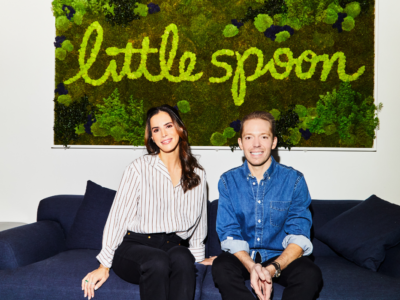Over the last decade, a number of studies have revealed dangerously high levels of heavy metals have been found in shelf-stabilized baby food. A 2023 Consumer Reports study has uncovered amounts of lead, arsenic, and cadmium in baby foods appear to be getting lower. However, the overall risk hasn’t changed much. Here’s the reality: there’s no way to completely eliminate heavy metals from the foods we eat because these metals naturally occur in our soil, water, and even the air we breathe. Unfortunately, human activity has only intensified these levels, making it an ongoing challenge. These environmental issues are not just impacting baby food, but our entire global food system, making dialogue and advocacy for stronger environmental policies to protect our soils more important than ever.
While there’s no way to completely eliminate heavy metals from the foods we eat and the foods we feed our families, we can take precautions and make choices that significantly lower our exposure, and particularly the exposure for our babies.
What Can We Do As Parents?
- Offer a varied diet. Variety exposes your little one’s palate, offers a range of nutritional benefits and helps avoid overexposure to one ingredient that could be naturally higher in heavy metals.
- Incorporate ingredients rich in calcium and iron. The AAP recommends a baby’s diet to be high in calcium and iron to help reduce lead absorption.
- Skip the rice cereal in the baby stage, an ingredient known to higher levels of organic and inorganic arsenic. Instead, opt for organic grains and seeds like chia, oats or buckwheat. Source from the right farms. Soil, water and agricultural practices are critical to limiting heavy metal exposure. Knowing where your food comes from ensures you’re choosing products sourced from farms that prioritize safe, sustainable practices, reducing the risk of contamination
- Use your voice. Currently, the FDA does not set any limits on levels of heavy metals in baby food, aside from arsenic in rice cereal. Parents deserve to have trust in the foods that nourish their families.
How Is Little Spoon Different?
- Little Spoon has set a new standard for baby food safety in the United States. We are the first and only baby food brand in the US to set strict limits for more than 500 toxins and contaminants—testing forheavy metals, pesticides and plasticizers based on the best-in-class EU standards, along with input from a council of leading global experts.
- Every batch of Little Spoon’s baby products are tested by a third-party accredited lab, and no product is sold unless it passes every test – period. This unprecedented commitment raises the bar for baby food safety, purity and transparency in the US, bringing peace of mind to parents and much-needed change to a century-old industry.
- We use 100+e USDA Certified Organic + non-GMO ingredients sourced from farmers who utilize advanced agricultural practices including soil quality testing to produce the ingredients we utilize in our purees. .
- In addition to our own program, we partner with the Clean Label Project, a non-profit focused on consumer transparency, to test our finished Babyblends for contaminants and regularly have blind testing throughout the year as part of this partnership.
- We will never sell our customers products that have not met our safety standards—all publicly available on our website. On each Babyblend page, you can view a dashboard with the specific testing limits, and status, for every toxin + contaminant we test.
- We have put into place a test-and-hold procedure whereby no products are released to our customers until satisfactory test results are obtained.
- We avoid using rice in our baby food, an ingredient known to have high levels of organic and inorganic arsenic. Instead, we utilize ingredients like organic chia, hemp, quinoa, oats and buckwheat.
- We encourage exposing your baby to a varied diet for your little one’s long term health and offer 40 different recipes so you have a range of options at every stage.
We aren’t just committed to transparency— we take our role seriously in keeping your kid healthy. Additional questions about Little Spoon safety standards? Visit www.littlespoonbigchange.com to learn more.



